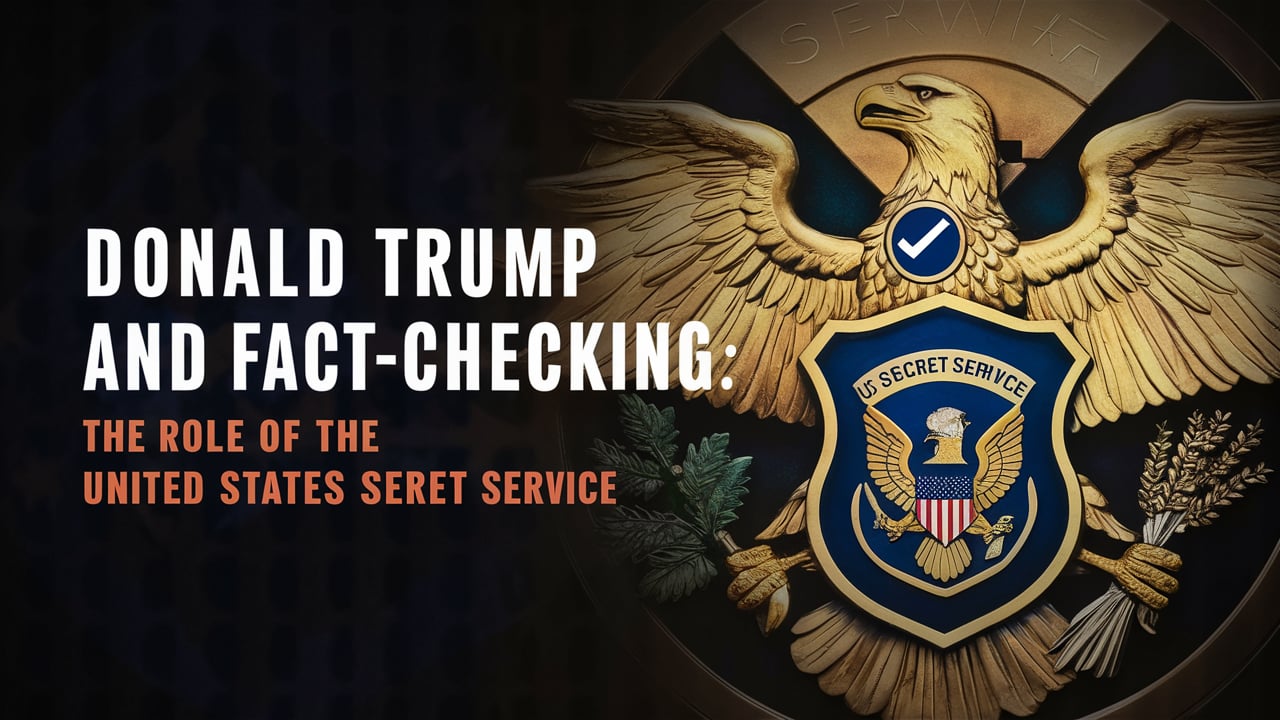The intersection of politics, media, and public safety is a complex and often contentious space. In the era of former President Donald Trump, fact-checking became a critical aspect of political discourse, and the United States Secret Service (USSS) played a vital role in ensuring the safety of Trump and those around him. This article explores how fact-checking has been applied to Trump’s statements and actions, and how the USSS has navigated its responsibilities amidst this contentious backdrop.
The Rise of Fact-Checking in the Trump Era
Donald Trump’s political career has been marked by a unique relationship with the truth, leading to a surge in fact-checking efforts by media organizations and independent bodies. His statements, often characterized by hyperbole and misinformation, have been rigorously scrutinized. This scrutiny intensified during his presidency and has continued post-presidency.
Volume of Statements: Trump’s prolific use of social media, particularly Twitter, and his frequent public appearances meant that fact-checkers were constantly busy. According to various fact-checking organizations, Trump made thousands of false or misleading claims during his time in office.
Impact on Public Perception: The fact-checking of Trump’s statements has had a significant impact on public perception. Supporters often dismissed fact-checks as biased or fake news, while critics used them to underscore their concerns about his truthfulness. This polarization highlighted the broader societal divisions in the United States.
Fact-Checking Organizations: Prominent fact-checking organizations like PolitiFact, FactCheck.org, and The Washington Post’s Fact Checker played crucial roles in examining Trump’s claims. These organizations employed teams of researchers and journalists to verify statements and provide context.
Key Areas of Fact-Checked Claims
Election Integrity: One of the most contentious areas of fact-checking involved Trump’s claims about election fraud in the 2020 presidential election. Despite numerous fact-checks debunking these claims, they persisted, contributing to significant political and social unrest.
COVID-19 Pandemic: Trump’s statements about the COVID-19 pandemic were another major focus of fact-checking. From downplaying the severity of the virus to promoting unproven treatments, his comments were frequently challenged by experts and fact-checkers.
Economic Performance: Trump often touted the economic achievements of his administration, sometimes exaggerating or misstating key statistics. Fact-checkers worked to provide accurate data and context to these claims.
Foreign Policy: Statements about international relations, including dealings with North Korea, Russia, and China, were also subject to fact-checking. Trump’s unconventional approach to diplomacy often led to controversial and factually dubious claims.
The United States Secret Service: Protecting a Polarizing Figure
While fact-checking is essential for maintaining the integrity of public discourse, the United States Secret Service has the critical task of ensuring the safety of the President, former Presidents, and their families. This responsibility becomes particularly challenging when the protected individual is as polarizing as Donald Trump.
Increased Threats: The divisive nature of Trump’s rhetoric led to increased threats against him and those around him. The Secret Service had to navigate these threats, which were often fueled by misinformation and heightened political tensions.
Event Security: Trump’s rallies and public appearances were major security events. The Secret Service had to manage large, often hostile crowds, balancing the need for security with the right to free speech and assembly.
Coordination with Other Agencies: The Secret Service worked closely with other law enforcement agencies to monitor and respond to potential threats. This coordination was crucial during events like the January 6th Capitol riot, where the safety of Trump and other key figures was at risk.
Cybersecurity: In the digital age, the Secret Service also had to contend with cybersecurity threats. Trump’s extensive use of social media made him a target for cyberattacks, requiring robust security measures to protect his accounts and personal information.
Challenges and Criticisms
The Secret Service’s task of protecting Donald Trump was not without challenges and criticisms. Balancing the protection of a controversial figure with the rights of protesters and the press required careful planning and execution.
Public Perception: The perception of the Secret Service’s impartiality was sometimes called into question. Critics argued that the agency’s actions could be seen as politically motivated, especially during highly charged events.
Resource Allocation: The extensive security requirements for Trump’s frequent travel and large-scale events placed significant demands on the Secret Service’s resources. Ensuring adequate protection without overextending the agency’s capabilities was a constant challenge.
Adaptability: The Secret Service had to adapt to the unique challenges posed by Trump’s unconventional approach to the presidency. This included dealing with his frequent off-the-cuff remarks and last-minute changes to schedules.
Conclusion
The era of Donald Trump has underscored the importance of fact-checking in maintaining the integrity of public discourse. At the same time, the United States Secret Service has faced unprecedented challenges in protecting a highly polarizing figure. As fact-checkers continue to play a crucial role in verifying information, the Secret Service remains steadfast in its mission to ensure the safety of those it is charged to protect. The interplay between these two elements highlights the complexities of modern political life and the ongoing efforts to navigate truth, security, and public perception in the United States.





